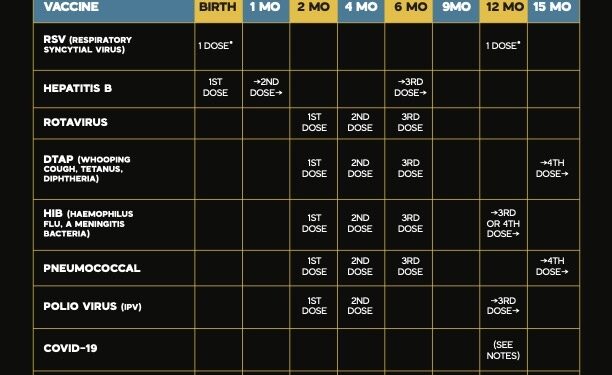Vaccines are essential, especially for kids. Their purpose is to help the immune system recognize viruses and bacteria before they can make you sick. According to the CDC, it takes a few weeks to develop this immunity, but it can last a lifetime. Because kids have immature immune systems, the risk of them becoming infected is very high. Vaccines are therefore used to help their bodies build immunity early on.
Table of Contents
What Happens If You Don’t Vaccinate Your Kids?
Not vaccinating your child can have serious health impacts. For example, infections such as measles can cause severe complications such as pneumonia, encephalitis, subacute sclerosing panencephalitis (SSPE), and death. Polio can also cause serious complications, including paralysis and post-polio syndrome.
Furthermore, not giving your child the HPV vaccine can lead to them developing cancers later in life, including cervical, anal, and penile cancers. In addition, not only will not vaccinating your child hurt your child, but it will also impact the community.
If people do not vaccinate their kids, herd immunity weakens. Herd immunity is a phenomenon where enough people are immune to a disease, so it cannot spread from one person to another. Vaccines are one way to achieve herd immunity, making it harder for diseases to spread from one person to another.
The increase in measles in 2025 is a clear example of weakened herd immunity. According to an article, “The average county-level vaccination rate fell from 93.92% pre-pandemic to 91.26% post-pandemic.” This illustrates the importance of vaccines in establishing herd immunity.
Why are People Skeptical About Vaccines?
Thimerosal
Thimerosal is a mercury-based preservative used in some vaccines. Thimerosal is essential to add to vaccines because it helps prevent the growth of bacteria and fungi in the vaccine vials.
- It contains ethyl mercury, which is quickly removed from the body
- Seafood and other foods contain methylmercury, which can build up to dangerous levels in the body
- These are not the same and affect the body very differently.
According to the CDC and NIH, there is no evidence that thimerosal in vaccines causes harm.
According to the FDA, the use of thimerosal as a preservative in U.S. FDA-licensed vaccines has significantly declined due to reformulation and development of vaccines presented in single-dose containers.
All vaccines routinely recommended for children 6 years of age and younger in the U.S. are available in formulations that do not contain thimerosal.
The only exception would apply to adolescents. Tetanus and Diphtheria Toxoids Adsorbed, single-dose presentation, manufactured by Mass Biologics, utilizes thimerosal as part of its manufacturing process..
Autism Myths
According to Dr. Josh Sharfstein, the concerns about vaccines and autism started when an article published in 1998 described 12 children who received the MMR vaccine and later developed autism. This paper was deeply flawed and taken down, but the false connection between vaccines and autism still exists.
One reason this false connection exists is that the MMR vaccine is given around 12 and 18 months old, which is around the same time early autism starts to appear. So people think that since the vaccine comes before the autism diagnosis, the vaccine must be the cause- the cause-and-effect myth. There is numerous strong scientific evidence to disprove this myth. In a large-scale study of 95,000 children, researchers found no association between the MMR vaccine and autism.
Fear of Severe Reactions
Another reason why people fear vaccines is the severe side effects, including seizures, anaphylaxis, and myocarditis. According to an article in Frontiers in Microbiology, vaccines undergo rigorous safety and efficacy studies to ensure their safety. In fact, many serious side effects are extremely rare.
When Guidelines Shift, So Does Trust
ACIIP is reevaluating long-standing vaccines:
- The Hepatitis B birth shot, which pediatricians say is crucial to have. An AAP article says that “infants infected with hepatitis B at birth face a 90% likelihood of developing chronic infection.”
- The MMR vaccine, Pediatricians warn that with the U.S. facing a growing measles outbreak, maintaining high MMR vaccination coverage is critical, and any attempt to question it could endanger lives.

Click this link for the complete schedule: BHM VACCINE SHEET copy 2
Adapted from CDC.gov
Resources:
HPV: Reasons to Get the Vaccine

























